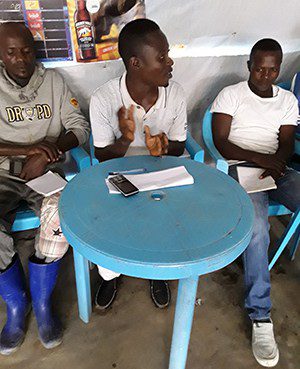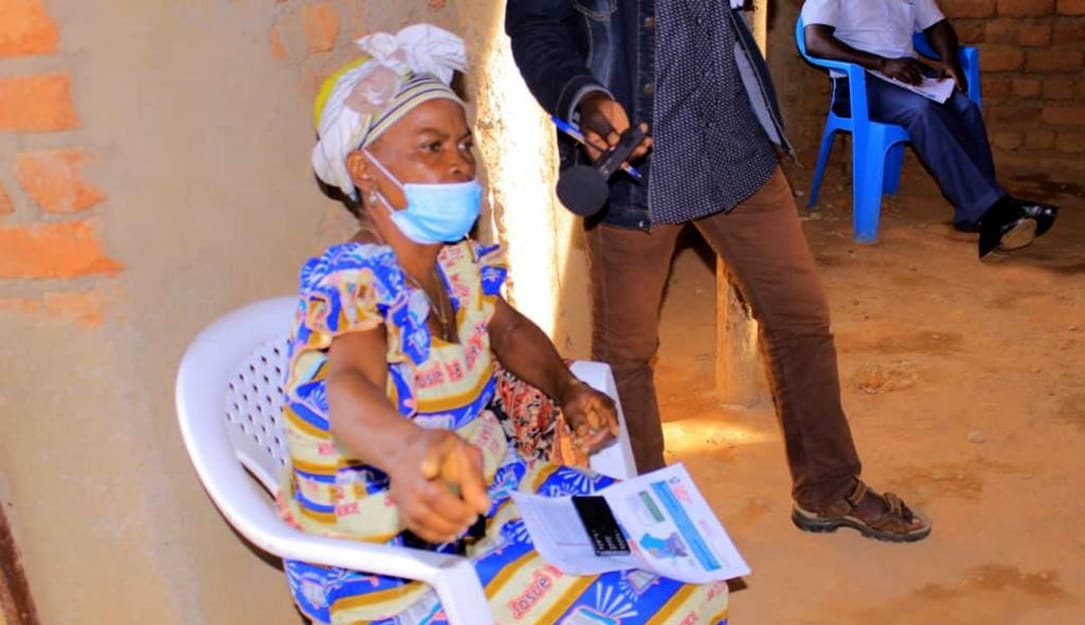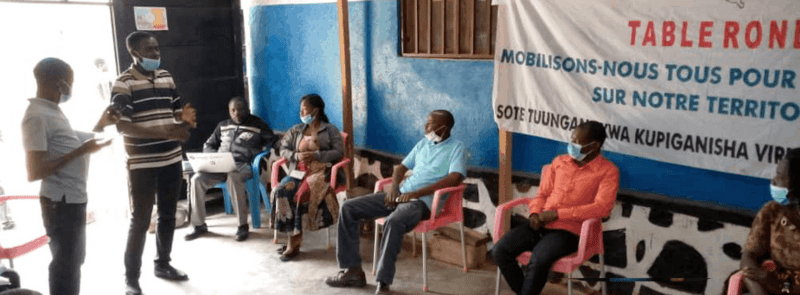On June 25, the Government of the Democratic Republic of Congo (DRC) declared the end of the 10th Ebola epidemic in the east of the country. The epidemic lasted two years and was described by the Minister of Health, Dr. Eteni Longonda, as “the longest, most complex and deadliest” in the history of all Ebola epidemics in the DRC.
In 20 months, the Ebola virus infected 3,470 people, of which 2,287 died, according to WHO.
North Kivu – the epicenter of the outbreak – has been grappling with insecurity ranging from armed groups to community resistance which severely impacted the Ebola response. Due to political tensions in the country causing mistrust in institutions, rumors around the origin and prevention of Ebola were numerous and widespread.
Tracking and addressing rumors about Ebola through a bulletin and roundtables
In one community, residents expressed suspicion about taking the Ebola vaccine. “If you take the vaccine, you will die within six months and if you’re lucky enough to get past six months, then it’s very rare to make it to five years,” was one rumor making the rounds.
Internews, which had already been present in the DRC for several years, opened a sub-office in North Kivu in January 2019 to support the Congolese government by addressing the rumors and misinformation. They delivered a unique approach based on listening to people in the community and using their feedback as the basis for an effective response. This approach was aimed at building trust between the population and the responders and ensuring that the Ebola communication response was in tune with the concerns of the community.
The rumor about the vaccine was featured in an edition of Tulyvio Sikia (Swahili for “What We Heard”), a weekly rumor tracking bulletin that Internews produced to distribute to local media and aid organizations.

In addition, to ensure the concerns of the community regarding the vaccine were addressed, Internews held a roundtable discussion on the issue that included the chairman of the civil society in Cantine and a nurse from the medical health center. The civil society leader provided a brief history on the use of vaccines against many other diseases and how the Ebola vaccine was no different. Then the community members were able to get their questions answered.
After the roundtable, representatives in the community recommended that the vaccination be extended to other communities; and stated that they now believe in the existence of Ebola and were willing to cooperate with the vaccination team, including alerting the authorities whenever there is an Ebola case in their community.
Providing information through a daily radio program
In all, Internews organized over 200 community events including public debates, round tables, listening clubs and individual interviews to understand community concerns. These community discussions were reflected in Internews’ daily radio program, Koma Ebola (loosely translated in Swahili as Stop Ebola), produced in French, Swahili and Kinande, the main local languages in the affected area.

In the DRC, radio is the most effective medium to reach and engage people. Internews produced over 1,000 editions of Koma Ebola which have been broadcast more than 200,000 times on 46 partner radio stations in North Kivu and Ituri Province.
In a survey conducted in October 2020, out of 1,522 people interviewed in Goma, Beni, and Butembo on whether they have ever heard about the KomaEbola radio program, 1,047 replied yes, a positive response among 68.8% of the population sampled. Of those who replied yes, 93.9% reportedly found the radio program useful and 90.5% reported that the radio program improved their knowledge about Ebola. When asked if they think that “KomaEbola radio program helped you change certain practices or behaviors about Ebola?” – 91% replied yes.
Internews’ activities in the DRC are funded by the USAID Bureau for Humanitarian Assistance and the Paul G. Allen Foundation.
(Banner photo: Community members participate in a meeting. Credit: Internews)
